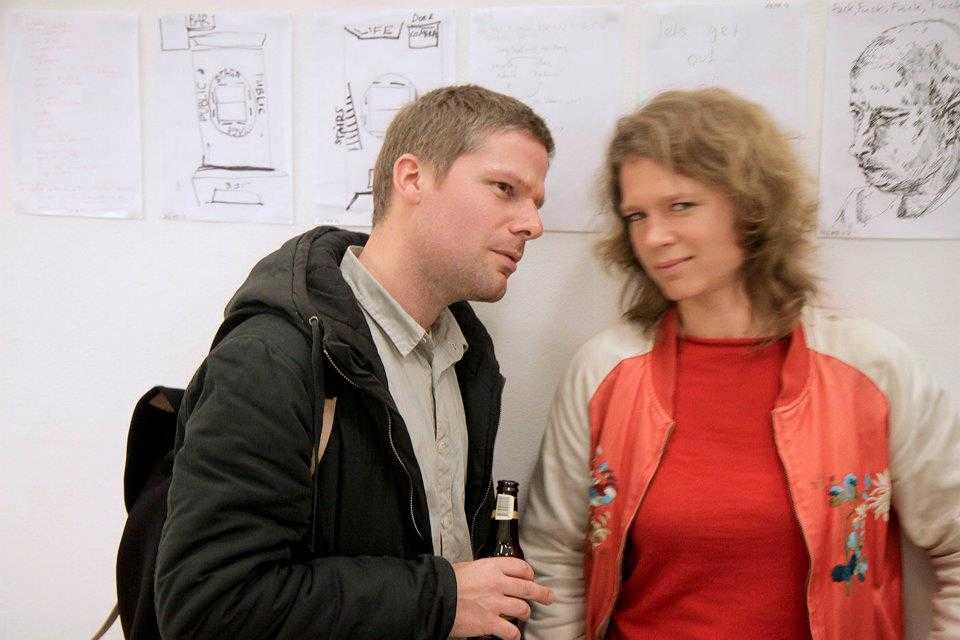Workshop / Toolkit: HOW TO DEAL WITH MONEY WHEN MAKING ART / run by Joris Lindhout & Maaike Gouwenberg / funded by ArtEZ Art Business Centre
A two day workshop & toolkit for DAI-students
presented by Maaike Gouwenberg and Joris Lindhout
Funded by the ArtEZ Art Business Centre
July 4 and 5, 2012 at the DAI, Kortestraat 27, Arnhem
DAI-alumni & English speaking ArtEZ Fine Art undergrads are welcome to join in.
( please contact j.vanderspek@artez.nl)
Artists traditionally have all kinds of side jobs to support themselves and their artistic production. When in the old days 'selling your skill as an image maker' was usually proficient for earning a living, artists today have to compete with a wealth of professionals from the applied arts. Having a sellable skill, acknowledging it and marketing it is now part of all artist practices, while only the happy and famous few manage to live from selling their artworks. And even those very few usually have a 'mixed practice' where lecturing, teaching and the occasional big-budget commercial stunt are just as much a source of income as their 'autonomous' practices.
'Mixed practice' and the 'creative industry' have become buzzwords in art education and in the way neo-liberal governments think and talk about funding and subsidizing. Ideally these words do not need to mean more to your practice than including some intelligent strategies on 'how to make money within the cultural field by using your skills in a variety of ways'. Amongst the countless examples: assisting an artist or gallery, doing graphic design, committing to (public) commissions, becoming a producer of sorts, or writing reviews for different websites and magazines.
Of course grants and subsidies can be a source of income as well. Although applying is becoming less viable as a serious and regular source of income, the remaining options are still very useful for different kinds of projects. Residencies have proven themselves another opportunity of maintaining oneself: a whole breed of artists who support themselves by hopping from (international) residency to residency has risen throughout the past decades. A mixed practice comes with mixed income, which comes with mixed administration and taxes.
This 2-part crash course is meant not only as an introduction to the possibilities and issues you have to be aware of, it is also intended as a platform for the exchange of information, tips and tricks. Being MA level students, you yourself most likely have acquired some experience with the matter we will introduce. Sharing knowledge on how to deal with practicalities and learning from peers is vital for the artist, whose profession is so vaguely defined that it constanly calls her (him) to maneuver in a wide variety of practical and financial contexts.
The program:
Day 1, July 4 at 2pm: An introduction to the business side of it all.
What is a 'zzp'-er? What are the different types of taxes I should be aware of? Do I need an accountant? What is a VAR? How to set up an invoice and what to take into account when deciding upon a fee? How to deal with international transactions? What to be aware of when dealing with a gallery? Through conversation we will exchange experiences and ideas about the taxes and prices in different countries and how to deal with them.
TO PREPARE: - Bring an invoice. - Bring experiences where you had to think of a fee (for a project, solo show or side job): how much did you estimate in different situations and why?
Day 2, July 5 at 10am: Where and when to apply for funding? What should an application look like? What funds are accessible for individual artists? When can I apply as a foundation/non profit and when should I initiate a foundation/non profit? What does the entire subsidy process look like? Does it matter which country I'm from? How can organizations and galleries find me? Should I find them? This second day we will guide you through a full application for a solo project application and a group project / foundation application.
TO PREPARE: - Bring a CV, Documentation, project proposal (if you have it, something you have been working on or otherwise a proposal that you want to apply with in the future)
This is a list of some artists which we will use as examples during our talk. Please check their websites beforehand:
- Gabriel Lester: http://www.gabriellester.com/
- Keren Cytter: http://www.youtube.com/user/rettomyc
- Marjolijn Dijkman: http://www.marjolijndijkman.com/
- Brad Benischek:http://bradbenischek.com/
- Michiel Kluiters: http://michielkluiters.nl/
- Frank Koolen: http://www.frankkoolen.com/
- Jos de Gruyter & Harald Thys (no website)

